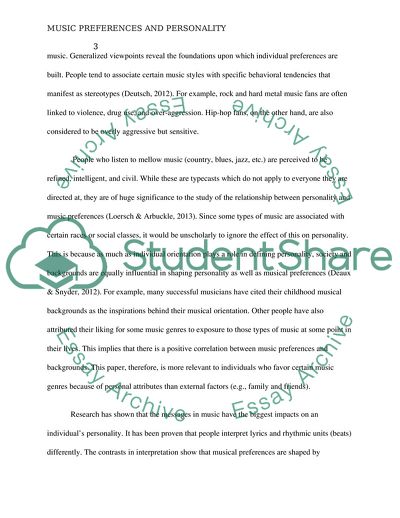Cite this document
(Music Preferences and Personality Research Paper, n.d.)
Music Preferences and Personality Research Paper. https://studentshare.org/music/1876918-music-preferences-and-personality
Music Preferences and Personality Research Paper. https://studentshare.org/music/1876918-music-preferences-and-personality
(Music Preferences and Personality Research Paper)
Music Preferences and Personality Research Paper. https://studentshare.org/music/1876918-music-preferences-and-personality.
Music Preferences and Personality Research Paper. https://studentshare.org/music/1876918-music-preferences-and-personality.
“Music Preferences and Personality Research Paper”. https://studentshare.org/music/1876918-music-preferences-and-personality.


